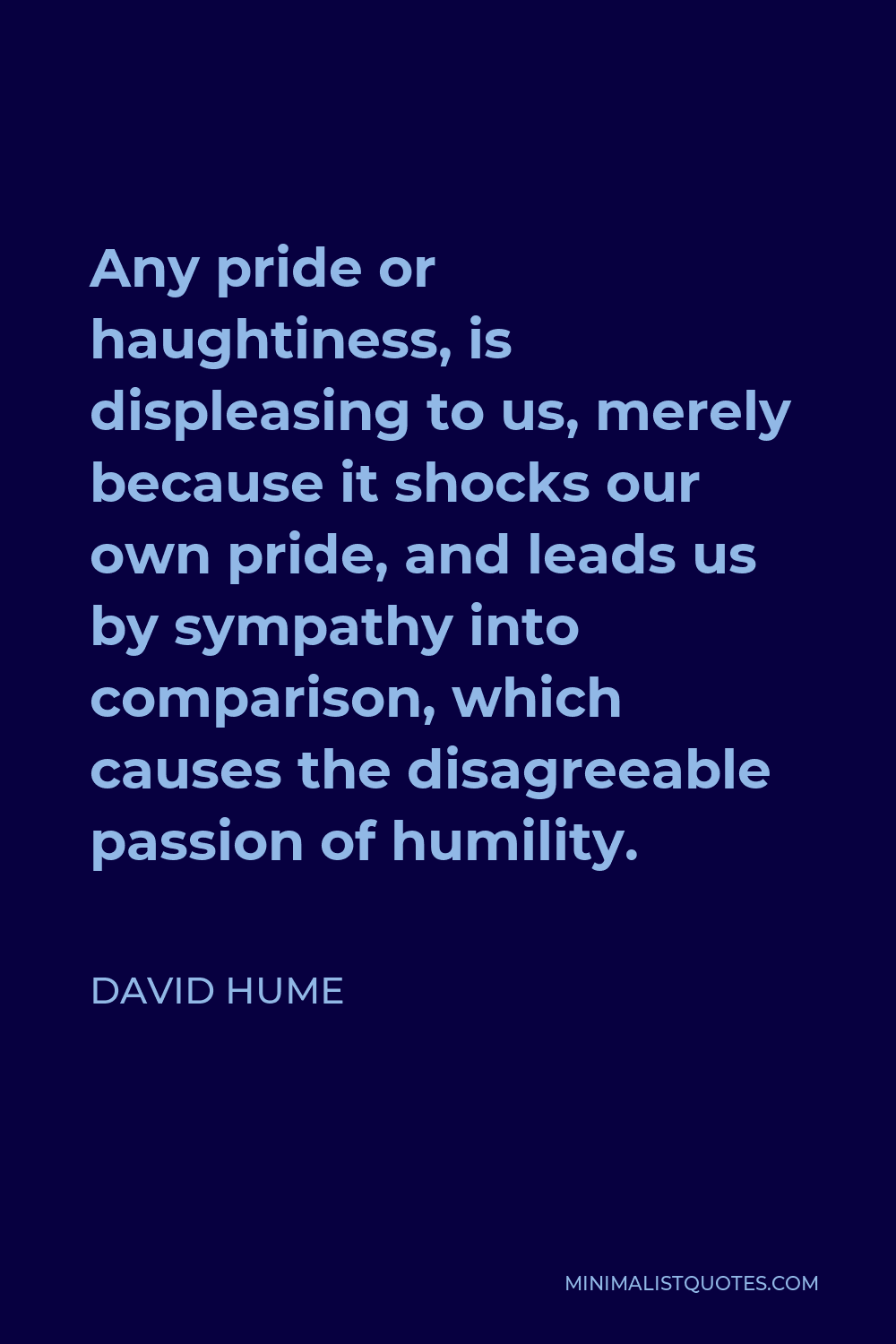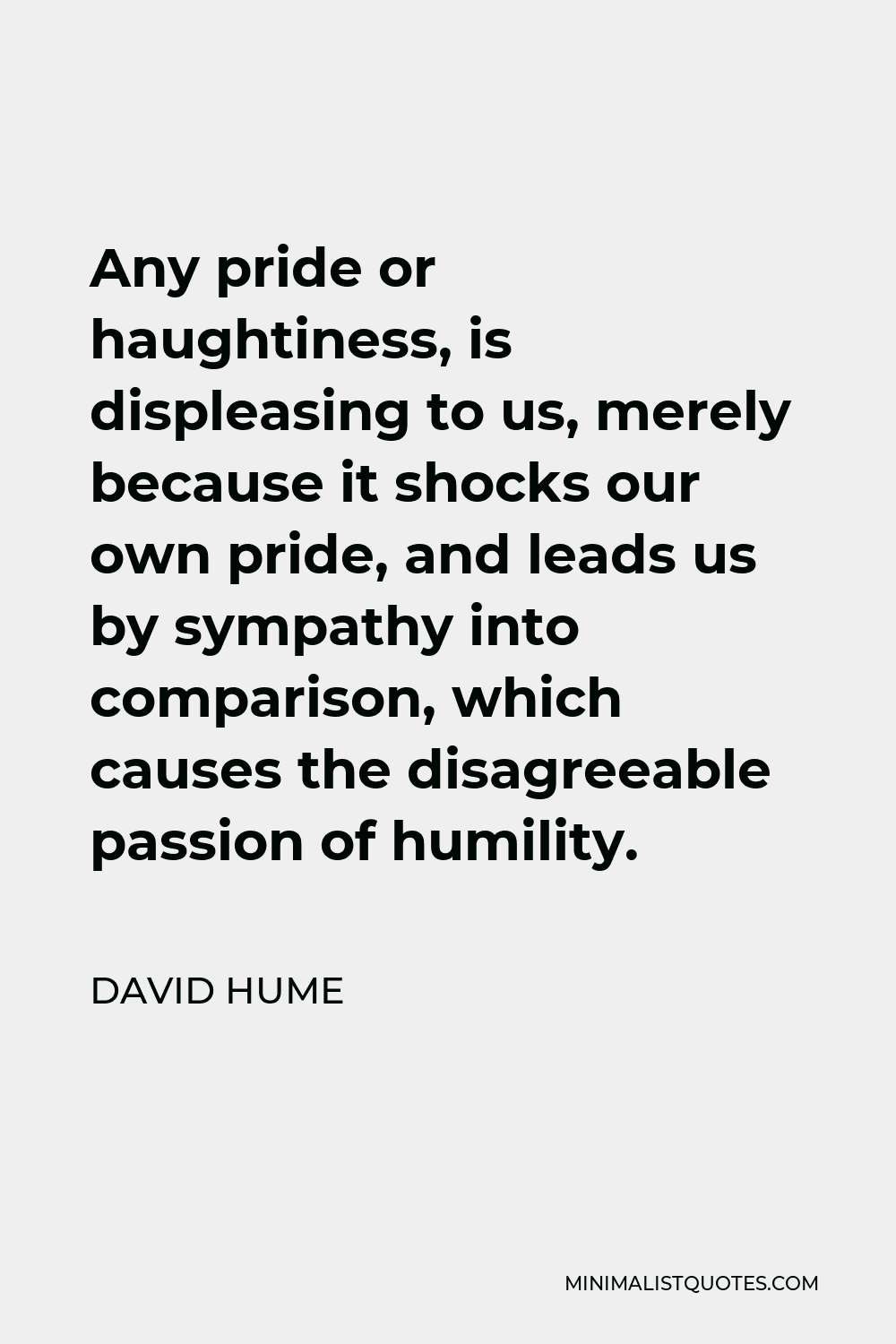In public affairs men are often better pleased that the truth, though known to everybody, should be wrapped up under a decent cover than if it were exposed in open daylight to the eyes of all the world.
DAVID HUMEAny pride or haughtiness, is displeasing to us, merely because it shocks our own pride, and leads us by sympathy into comparison, which causes the disagreeable passion of humility.
More David Hume Quotes
-







-





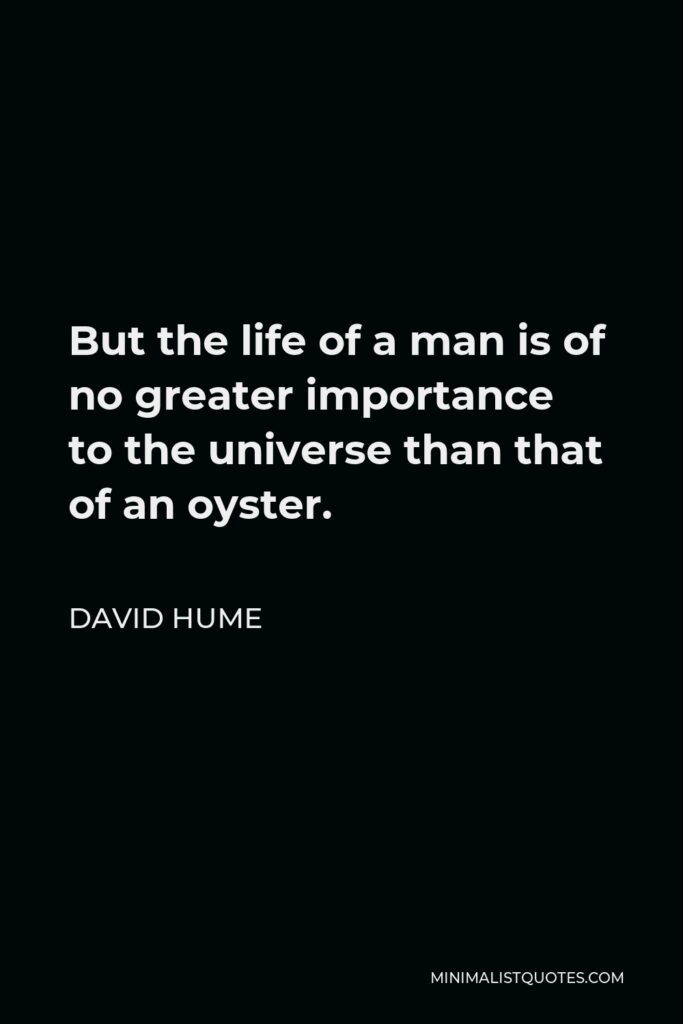

But the life of a man is of no greater importance to the universe than that of an oyster.
DAVID HUME -







Beauty is no quality in things themselves: It exists merely in the mind which contemplates them; and each mind perceives a different beauty.
DAVID HUME -





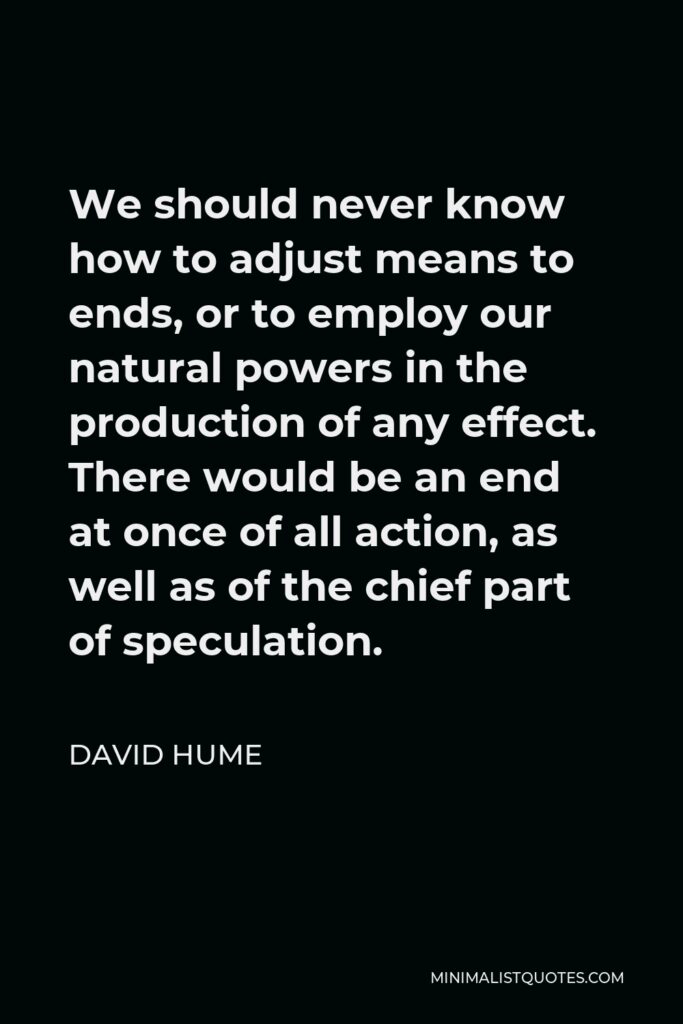

We should never know how to adjust means to ends, or to employ our natural powers in the production of any effect. There would be an end at once of all action, as well as of the chief part of speculation.
DAVID HUME -





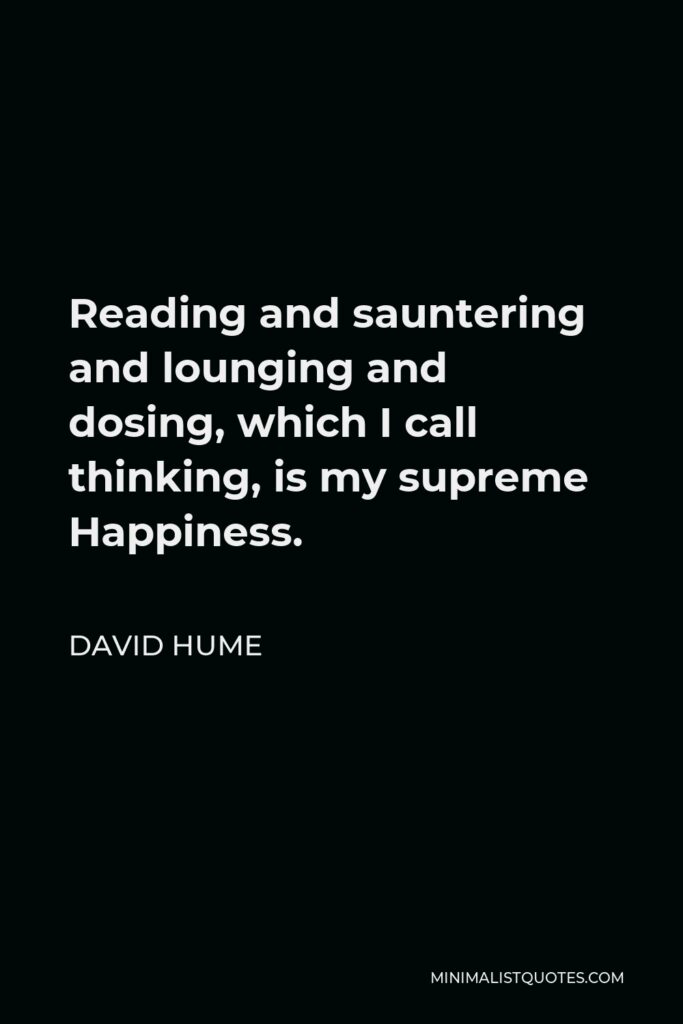

Reading and sauntering and lounging and dosing, which I call thinking, is my supreme Happiness.
DAVID HUME -





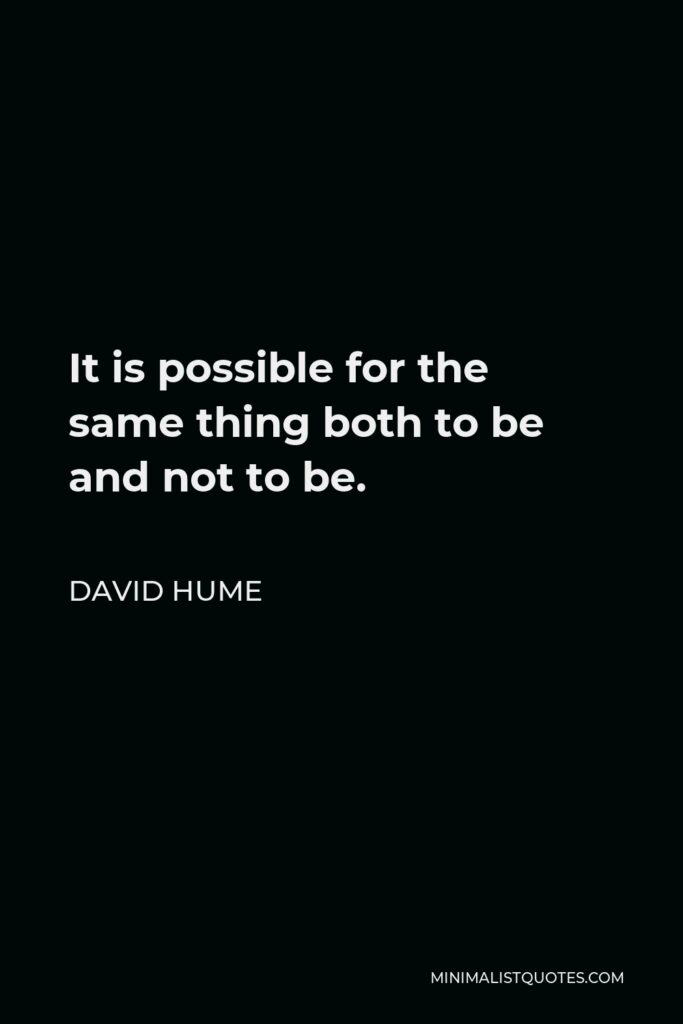

It is possible for the same thing both to be and not to be.
DAVID HUME -





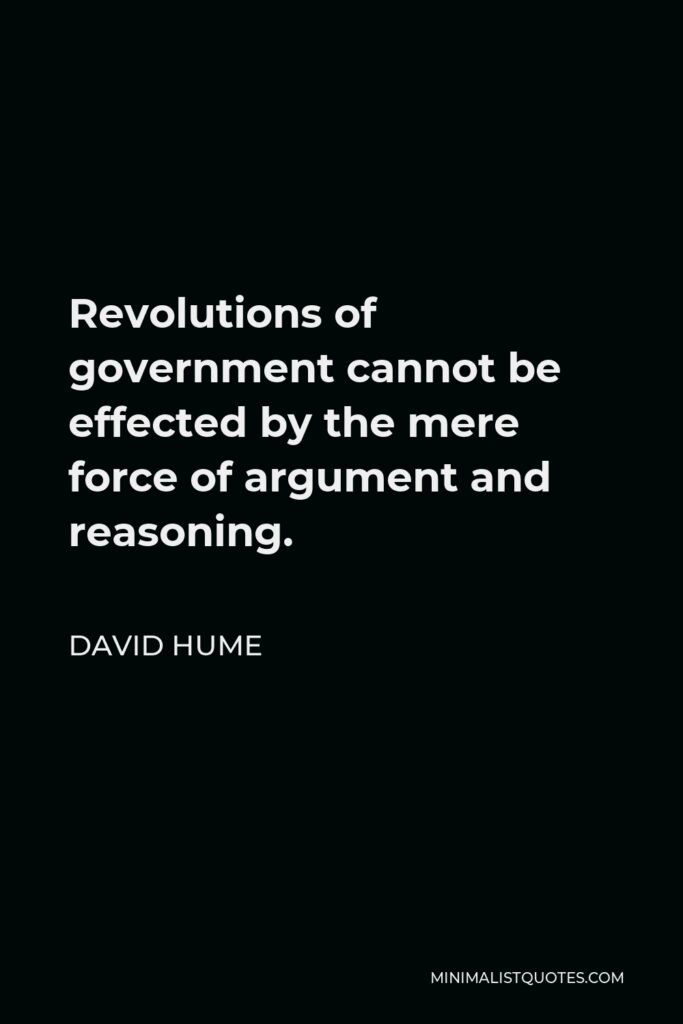

Revolutions of government cannot be effected by the mere force of argument and reasoning.
DAVID HUME -







A purpose, an intention, a design, strikes everywhere even the careless, the most stupid thinker.
DAVID HUME -







To be a philosophical Sceptic is the first and most essential step towards being a sound, believing Christian.
DAVID HUME -







The bigotry of theologians is a malady which seems almost incurable.
DAVID HUME -





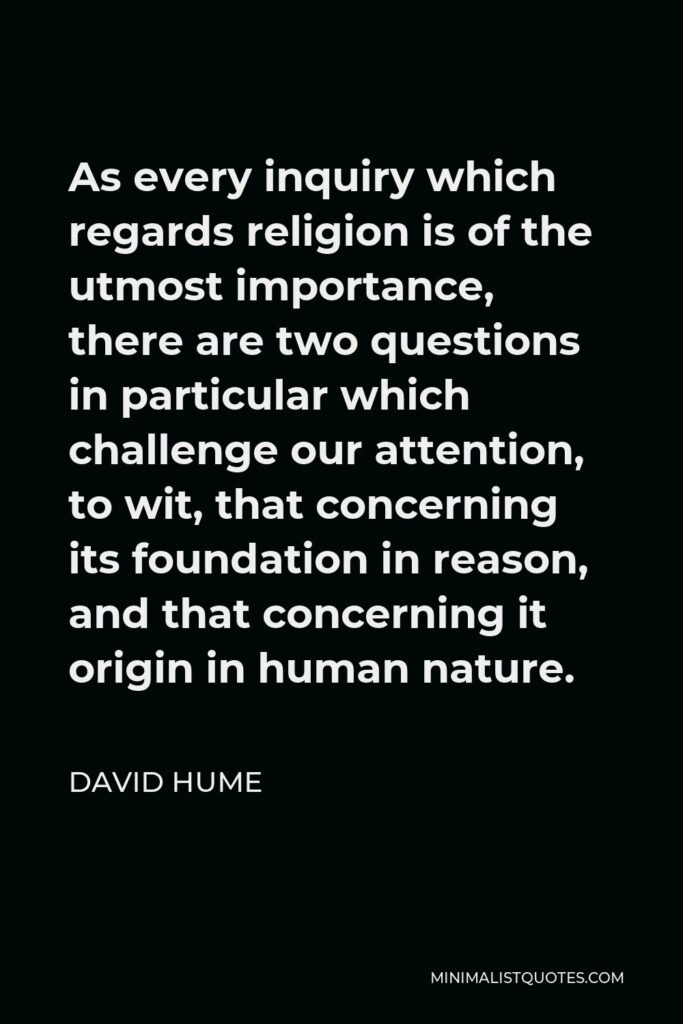

As every inquiry which regards religion is of the utmost importance, there are two questions in particular which challenge our attention, to wit, that concerning its foundation in reason, and that concerning it origin in human nature.
DAVID HUME -





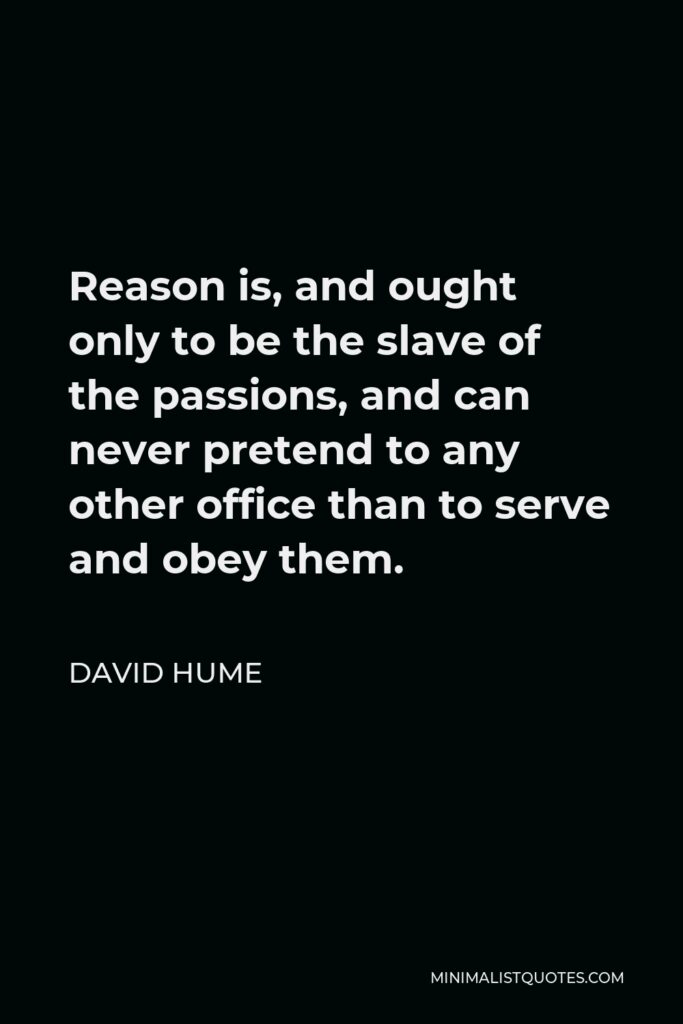

Reason is, and ought only to be the slave of the passions, and can never pretend to any other office than to serve and obey them.
DAVID HUME -





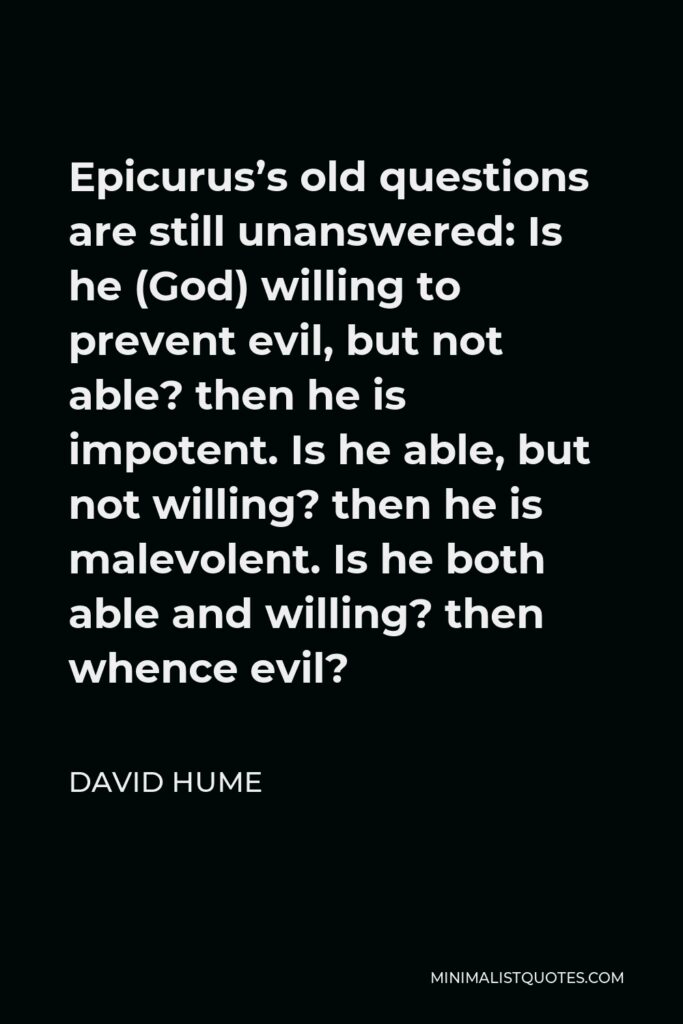

Epicurus’s old questions are still unanswered: Is he (God) willing to prevent evil, but not able? then he is impotent. Is he able, but not willing? then he is malevolent. Is he both able and willing? then whence evil?
DAVID HUME -





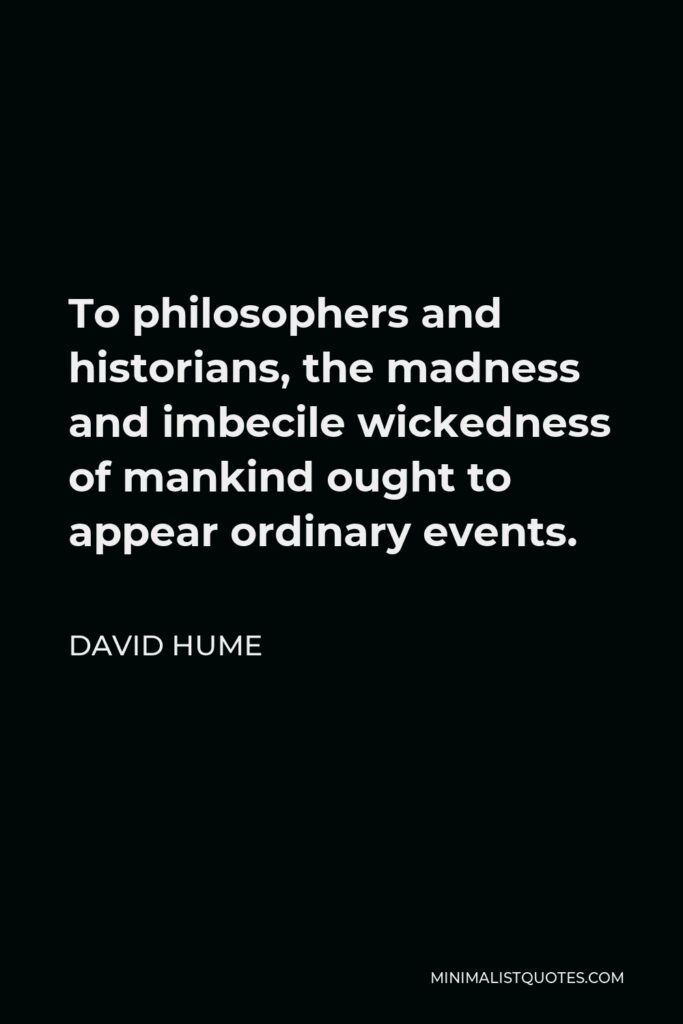

To philosophers and historians, the madness and imbecile wickedness of mankind ought to appear ordinary events.
DAVID HUME -







I never knew anyone, that examined and deliberated about nonsense, who did not believe it before the end of his enquiries.
DAVID HUME -





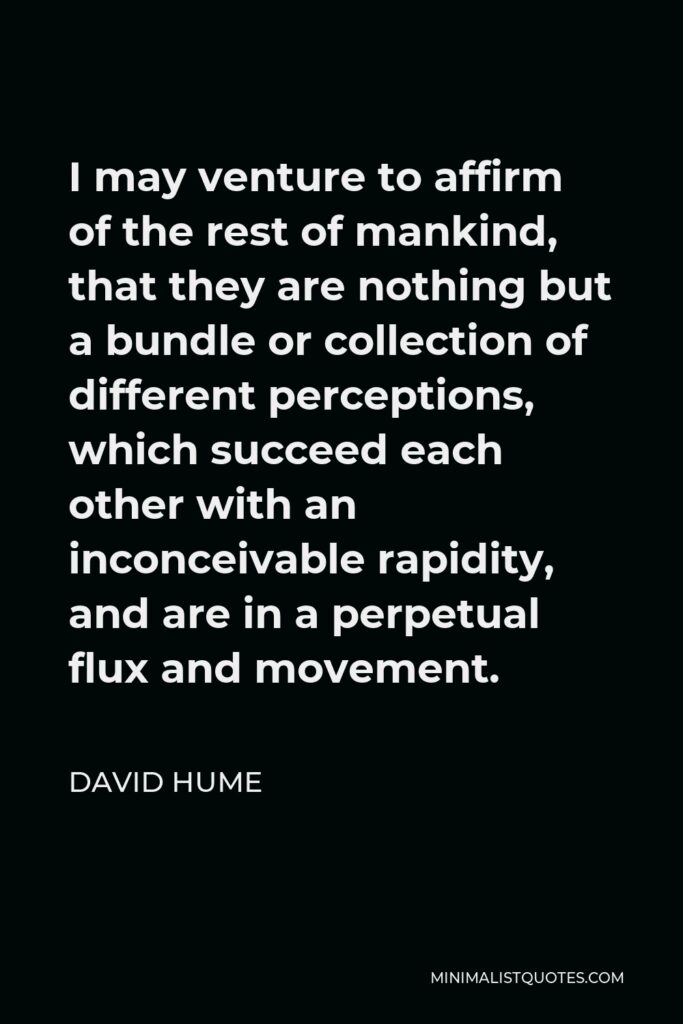

I may venture to affirm of the rest of mankind, that they are nothing but a bundle or collection of different perceptions, which succeed each other with an inconceivable rapidity, and are in a perpetual flux and movement.
DAVID HUME


